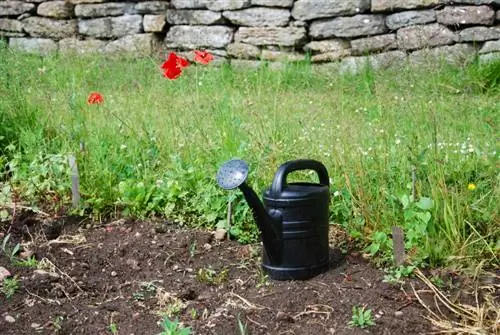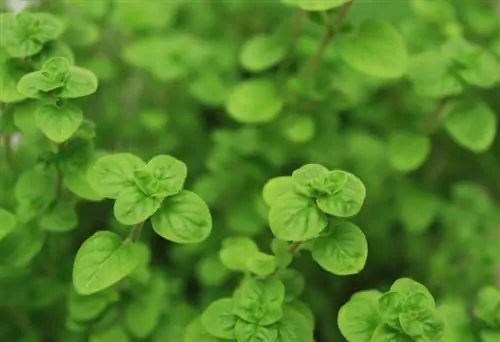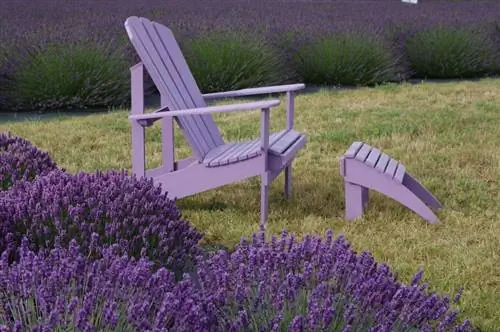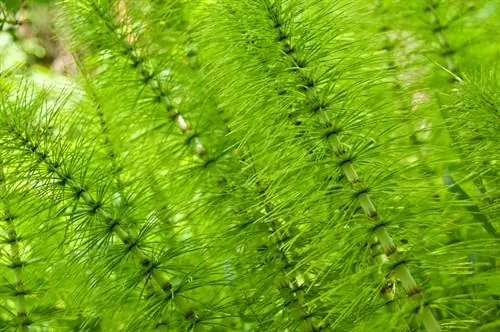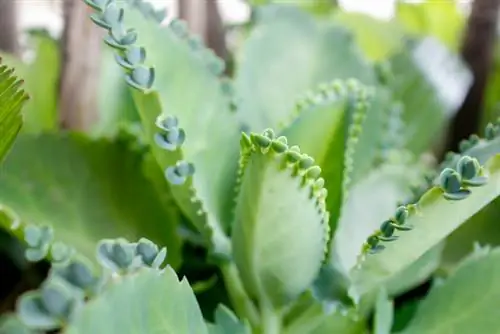- Author admin leonars@hobbygardeners.com.
- Public 2023-12-16 16:46.
- Last modified 2025-01-23 11:20.
The garden should be beautifully colorful or also very tidy. Tastes differ. Most garden owners, on the other hand, like easy-care plants. The poppy seeds can serve this purpose. It is also available in many different colors.
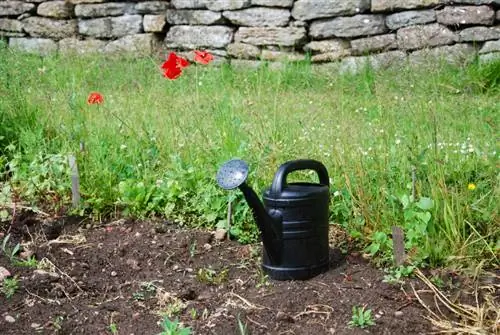
How do you properly care for a poppy?
Poppies require little water and no fertilizer. They prefer sunny locations and well-drained soil. Annual varieties can be removed after flowering, perennial varieties require pruning in autumn and winter protection. Natural remedies such as garlic broth or horsetail extract help prevent pests and diseases.
Watering poppies correctly
The poppy seeds only need a little water, so they don't actually need to be watered. However, if it blooms in a hot, dry summer, you can make an exception and give it some water. This is especially true for the peony poppy.
Do poppies need to be fertilized?
You should definitely avoid using fertilizer, because poppy seeds are very undemanding and thrive in nutrient-poor soil. If it is fed too well, it shoots up and the stems bend easily under the weight of the flower.
The lushly blooming peony poppy is an exception. It can tolerate a small portion of liquid fertilizer every now and then. When planting or transplanting, you can also add a little well-rotted compost to the planting hole of the other poppy seed varieties.
Diseases and pests
When moisture persists, poppies occasionally suffer from poppy blight, a bacterial disease that causes mottled leaves that later turn brown. Spider mites can also occur. These can be removed with nettle decoction or tansy tea. A solution of soft soap is also helpful. Garlic broth or horsetail extract help against mildew. They can also be used for prevention.
The poppy in winter
Not all varieties are winter-hardy and perennial. You can pull up annual poppies after they have flowered and dispose of them in the compost. Let the seed capsules ripen and then the poppy seeds themselves. Of course, you can also carefully remove the seeds from the capsule and sow them elsewhere.
Turkish poppies are perennial. If you want to enjoy its flowers again next year, you will need to prune it back in the fall. Then give your poppy winter protection from the cut parts of the plant, leaves or brushwood.
Tips & Tricks
Plant your poppy in a sunny spot with well-drained soil, then you don't have to worry about care.

